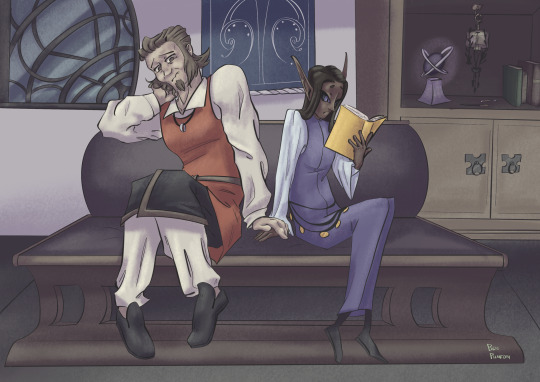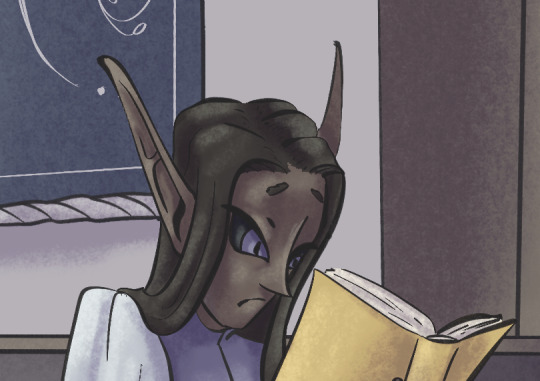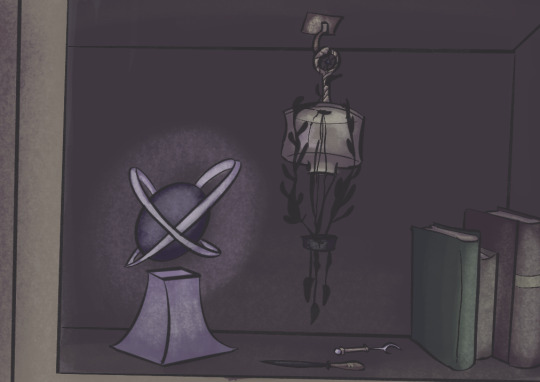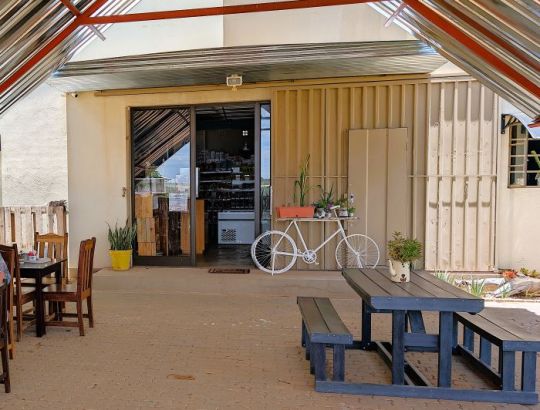#osir
Explore tagged Tumblr posts
Text
Basen letni OSIRu otwarty!
W poniedziałkowe południe miała miejsce skromna uroczystość otwarcia sezonu kąpielowego na naszym pięknie wyremontowanym basenie odkrytym. Pierwsi chętni do skorzystania z basenu otrzymali z rąk wiceprezydenta Świdnicy Szymona Chojnowskiego miejskie gadżety, jednak za bilet musieli zapłacić 🙂 Basen w promieniach słońca prezentuje się pięknie, zapraszamy do kąpieli ale przedtem do obejrzenia…

View On WordPress
0 notes
Text

Also I got that rebelle 7 program and gonna be trying it out now by drawing skeletons. Not a plug.
123 notes
·
View notes
Text

the village daycare owner/nurse. to threaten his babies is to risk (insert tera bug slither wing choice band first impression calc here)
(for the explorers of light idea on bsky!)
#ffxiv#art#au ra#xaela#miqo'te#miqo'ra#jhai kagon#artists on tumblr#oc#seeker of the sun#pokemon#pokemon!AU#jai kagon#osiric kagon#osiric rivers#ossy kagon#slither wing#mew
23 notes
·
View notes
Text

Featuring @inkary 's Osirator and @baronofcaring 's S-2
#skaven#warhammer#warhammer 40k#osirator#hold it yes yes!!!!#lmao i draw that damn tail without specific brush i feel damned#patience got tested
353 notes
·
View notes
Text


evening's respite...
#ffxiv#art#ffxivart#artists on tumblr#xaela#viera#vie'ra#au ra#khorijin bayaqud#khor#osiric rivers#ossy#vi'qote#jai kagon#miqo'ra#oc#oc art#oc artist#oc art tag#ffxiv oc#wol#wol art#trans oc
33 notes
·
View notes
Text





I will be releasing a small worldbuilding fanzine at the start of January, so look out for that!
In the meanwhile, enjoy this two ocs ive been obsessing over
#original character#dungeons & dragons#dnd#elf x human#high elf#human#mlm#gay#couple#romatic#stylized#fantasy#commisions open#ellethir#osiric
19 notes
·
View notes
Note
Damn, zoned out again...
[They freeze upon seeing the newest member.]
...Oh. Clover, hi. I'm Black Heart. Been around a while. Unfortunately...
Um... Listen, I'm gonna just cut to the chase here - you don't want to be involved with anything going on here if you value your life. Getting mixed up in this... It's guaranteed to end in your death.
But... I suppose it's too late for that now, huh? You're already here...
You seem to be more aware of the nature of him than a lot of us were going into this. And if what you said is true, then it seems we all missed a lot of action... Very concerning.
If you want to continue down the path of the others, I won't stop you... But, if you want to keep talking with me about the potential for another ending where everyone is better off, including him, just let me know...
And hey, don't tell anyone I've said these things to you. I have everyone's best interest at heart, but it won't seem like that to the rest of the server members if they found out. I'm trusting you, alright?
-🖤
[YOU'VE GOT MAIL!] To: ☘️ From: 🖤
#new_beginnings.exe#🖤 {black heart}#MYAVD MFN SLIVY YXRRB. MVVR RRM OSIR HUQVY KH AULZS LL. SUB TZC PV WIGH ZL WOZ XJVKPOVX HF UV SIYS.
6 notes
·
View notes
Text

Hafsa bint al-Hajj al-Rukuniyya (1135–c.1190-1191) was one of the most celebrated female poets of Al-Andalus, renowned for her intellect and literary brilliance.
Romantic affairs
Little is known about Hafsa’s childhood, except that she was born in Granada and that her father was a Berber. Growing up in this vibrant intellectual center, she likely received an excellent education.
Hafsa’s personality shines through her poetry—bold, sharp-witted, and unafraid to speak her mind. She was known for her biting satires and lived on her own terms, never concealing her love affairs.
Around 1154, she became romantically involved with the poet Abū Jaʿfar Aḥmad ibn ʿAbd al-Malik Ibn Saʿīd. Initially, she ignored his advances, as she was involved with someone else at the time. But he persisted, sending her another poem, and she eventually agreed to meet him.
Their relationship, marked by poetic exchanges, was public knowledge, despite the fact that they never married.
Royal poet
That same year, Granada fell to the Almohads, ushering in political changes. Abū Jaʿfar was appointed vizier to the new ruler of Granada, Abū Saʿīd ʿUthmān, who deeply admired Hafsa’s poetry. In 1158, he sent her as part of a diplomatic delegation to his father. Later, Hafsa was granted the town of Rakuna, securing her financial independence.
However, Abū Saʿīd ʿUthmān and Abū Jaʿfar soon became rivals for Hafsa’s affections. The ruler attempted to separate her from Abū Jaʿfar. In 1163, Abū Jaʿfar was implicated in a failed plot against him, arrested, and executed by crucifixion.
Hafsa mourned his death deeply, defiantly dressing in black despite pressure to move on.
From poet to teacher?
Did Hafsa stop writing poetry after this loss? None of her works are recorded for the next twenty years. She found a new path as a teacher. Her talents remained highly regarded, and she was chosen to educate the daughters of Caliph Yaqub al-Mansur in Marrakech.
She passed away there sometime between 1190 and 1191.
Some of Hafsa’s poems
As We Walked
As we walked together your garden gave no full-faced grin, but covered its florid blooms returning our smiles with green envy. And as we talked together your river gave no bubbly laugh, but belched and yelled to drown out our entrancement. The world doesn’t sweeten just because we turn one another to honey. Each day even the sunny dawn breaks to blot out those amorous stars.
Dressed in Mourning
Dressed in mourning, worn deeper than clothes, it’s that inner fabric inciting them to threats. God, give Your blessings to those trapped within tears, unseen as the smiles of the slain, stolen as water from a well. Let clouds garment this day, a pale offering. God’s embrace: a recompense for a hand I couldn’t lend.
Enjoyed this post? You can support me on Ko-fi!
Further reading:
Glacier Osire, Femmes politiques au Maroc d’hier à aujourd’hui
Hammond Marlé, “Hafsa bint al-Hajj al-Rukuniyya”, in: Meri Josef W. (ed.), Medieval Islamic Civilisation: An Encyclopedia
Pewitt Will, "Five Poem of Ḥafṣa bint al-Ḥājj ar-Rakūniyya in Translation"
#Hafsa bint al-Hajj al-Rukuniyya#history#women in history#women's history#historyedit#12th century#morocco#moroccan history#spain#al-andalus#female authors#female poets#medieval women#middle ages
69 notes
·
View notes
Photo

Letters to the Dead in Ancient Egypt
The question of what happens after death has been addressed by religious beliefs and philosophies of every world culture throughout recorded history and ancient Egypt is famous for its own response to the mysteries of the afterlife. Their monumental tombs and temples are well known but a practice far less noticed is their letters to the dead.
In the biblical Book of Luke, the story is told of Lazarus and the Rich Man in which a man of wealth and the poorest beggar both die on the same day. The beggar, Lazarus, finds himself in paradise while the rich man is in torment. He looks up to see Father Abraham with Lazarus beside him and asks if Lazarus might bring him some water, but this is denied; there is a great chasm fixed between those in heaven and those in hell, and none may cross.
The rich man then asks if Abraham could send Lazarus back to the world of the living to warn his family because, he says, he has five brothers who are all living the same self-indulgent lifestyle he enjoyed and he does not want them to suffer the same fate. When Abraham answers, saying "They have Moses and the prophets; let them listen to them," the rich man responds that his brothers will not listen to scripture, but if someone should come back from the dead, they would surely listen to him. Abraham then says, "If they do not listen to Moses and the prophets they will not be convinced even if someone rises from the dead" (Luke 16:19-31).
This story has been interpreted in many different ways over the centuries in order to make various theological points, but its theme is timeless: what happens after death? The rich man thought he was living a good life but finds himself in the worst kind of afterlife while Lazarus, who suffered on earth, is welcomed to a reward in heaven. The request of the rich man to send Lazarus back to earth sounds reasonable in that if someone came back from the dead to tell what it was like, people would certainly listen and live their lives differently; Abraham, however, denies the request.
Abraham's response, however disappointing it might seem to the rich man, is an accurate assessment of the situation. In the present day, people's stories of Near Death Experiences are accepted by those who already believe in that kind of afterlife and are denied by those who do not. Even if someone should come back from the dead, if one cannot accept that kind of reality, one will not believe their story and, in this same way, will certainly not accept ancient stories regarding the same kind of event.
In ancient Egypt, however, the afterlife was a certainty throughout most of the civilization's history. When one died, one's soul went on to another plane, leaving the body behind, and hoped for justification by the gods and an eternal life in paradise. There was no doubt that this afterlife existed, save during the period of the Middle Kingdom (2040-1782 BCE), and even then the literature which expresses cynicism toward the next life could be interpreted as a literary device as easily as a serious theological challenge. The soul of a loved one did not cease to exist at death nor was there any danger of a surprise in the afterlife such as the rich man from Luke experiences.
An exception is in the fictional work from Roman Egypt (30 BCE - 646 CE) known as Setna II, which is the probable basis for the Luke tale. In one part of Setna II, Si-Osire leads his father Setna to the underworld and shows him how a rich man and a poor man experienced the afterlife. Contrary to Setna's earlier understanding that a wealthy man would be happier than the poor, the rich man suffers in the underworld and the poor man is elevated. Si-Osire leads his father to the afterlife to correct his misunderstanding, and their short trip there illustrates the closeness ancient Egyptians felt to the next world. The dead lived on and, if one wanted to, one could even communicate with them. These communications are known today as 'letters to the dead'.
The Egyptian Afterlife & the Dead
It was believed that, after one died and the proper mortuary rituals had been observed, one passed on to judgment before Osiris and his tribunal, and if one had lived a good life, one was justified and passed on to paradise. The question of 'What is a good life?' was answered through the recitation of the Negative Confession before the tribunal of Osiris and the weighing of the heart in the balance against the white feather of truth, but even before one's death, one would have a fairly good idea of one's chances in the Hall of Truth.
The Egyptians did not rely on ancient texts to instruct them on moral behavior but on the principle of ma'at, harmony and balance, which encouraged them to live in peace with the earth and with their neighbors. Certainly, this principle was illustrated in religious stories, embodied in the goddess of the same name, invoked in written works such as medical texts and hymns, but it was a living concept which one could measure one's success in meeting daily. One would not need someone to come back from the dead with a warning; one's actions in life and their consequences would be enough - or should have been - to give a person a fairly good indication of what awaited them after death.
The justified dead, now in paradise, had the ear of the gods and could be persuaded to intercede on people's behalf in answering questions, predicting the future, or defending the petitioner against injustice. The gods had created a world of harmony, and all one needed to do in order to reach paradise in the next was to live a life worthy of eternity. If one made each day an exercise in creating a life one would wish to continue forever, founded on the concept of harmony and balance (which of course included consideration and kindness for one's neighbors), one could be confident of entry to paradise after death.
Still, there were supernatural forces at work in the universe which could cause one problems along life's path. Evil demons, angry gods, and the unhappy or vengeful spirits of the dead could all interfere with one's health and happiness at any time and for any reason. Simply because one was favored by a god, like Thoth, in one's life and career did not mean that another, like Set, could not bring one grief. Further, there were simply the natural difficulties of existence which troubled the soul and threw one off balance such as sickness, disappointment, heartbreak, and death of a loved one. When these kinds of troubles, or those more mysterious, came upon a person, there was something direct they could do about it: write a letter to the dead.
Continue reading...
28 notes
·
View notes
Text

damn
492 notes
·
View notes
Text
But I like talkin’ to yew too :(
Even if yew have zero swag…
if anybody needs me I'll be kicking my legs and giggling like a schoolgirl.
187 notes
·
View notes
Text

heres to another year of drawing my catlizard and his family~
(also known as 'how i learnt to stop caring about perfectly smooth connected lines in my art and embrace the wiggly brush and lasso tool.)
#ffxiv#miqo'te#xaela#au ra#miqo'ra#seeker of the sun#viera#rava#vie'ra#vi'qote#art#artists on tumblr#oc#jhai kagon#jai kagon#osiric rivers#cotota kagon bayaqud#khorijin bayaqud
13 notes
·
View notes
Text

the sun, the moon, and their little star ♥️
#ffxiv#art#ffxivart#artists on tumblr#xaela#viera#vie'ra#au ra#khorijin bayaqud#khor#osiric rivers#ossy#vi'qote#jai kagon#miqo'ra#oc#oc art#oc artist#oc art tag#ffxiv oc#wol#wol art#trans oc
17 notes
·
View notes
Text
Sorry sorry. Been told I sound like that often, dear. Just a habit of mine I suppose..
*he smiles brightly at her*
I mean.. what do I got to lose?
*Alex had sent some servants to retrieve Osiris and Roselio. When they arrived in the great hall they found Alex meeting with a young woman about his age. She was dressed in the fanciest most expensive clothes they had ever seen and was laughing at every word Alex said clearly having it bad for him*
@mini-assassin-osiris @roselio-and-the-thorn
#epic the musical rp#epic the musical#rosewater#grown gardens#Ooc: yes that is a reference to how Osirs was flirting with Alex-
191 notes
·
View notes
Text
Namibia, Botswana, Simbabwe 2024/25 - Tag 30
Herrschaften und Oukies!
Und schwupps schon ist unsere Zeit auf der wunderbaren Farm Otjikaru zu Ende.

Ein letztes Mal frühstücken wir zusammen mit unseren zauberhaften Gastgebern.

Wir brechen um kurz nach 10 Uhr auf, fahren aus dem Farmtor hinaus und schleichen über die asphaltierten C 22.

Doch die Freude währt nur extrem kurz, denn wir überqueren sie nur und fahren statt dessen auf der D 2476 weiter.

Die Planung sieht heute vor von Richtung Waterberg kommend, dann über Osire, Hochfeld, Steinhausen und Omitara bis zur Farm Heimat zu fahren.

Die Strecke ist tiptop in Schuss und nach etwa 45 Minuten erreichen wir die C 30.

Dieser werden wir nun erst einmal bis in die Ortschaft "Hochfeld" folgen, wo wir zu Mittag einkehren wollen.

Für unsere heutige Tour freuen wir uns natürlich über den strahlenden Sonnenschein, aber für die geplagten Farmer ist das schöne Wetter alles andere als erfreulich.

Das auserkorene Ziel heißt heute zunächst: Die Skuur Coffee Shop und liegt direkt neben dem Kaap Agri Hochfeld Depot, also dem örtlichen Landhandel.

Viel los ist hier heute nicht, aber dafür ist dieser Coffee Shop wieder einmal bemerkenswert gut sortiert.

Wir gönnen uns ein paar Leckerchen (Todays Special: Bratwurst & Chips) und erstehen noch das Eine oder Andere für zu Hause und für unterwegs.

Anschließend fuhren wir weiter über die Dörfer, immer in Richtung Süden.


In Steinhausen biegen wir auf die C 29 ab. Dieser folgen wir für rund 80 Kilometer bis zur B 6, dem Trans-Kalahari-Highway.

Wir kommen ein Stückchen hinter dem Flughafen raus und genießen für ein paar Kilometer die Teerstraße.
Hinter der Ortschaft Seeis biegen wir dann sofort rechts wieder auf die Schotterpiste ab.
Wie hat sich die Landschaft durch den Regen verändert! Unglaublich, wie grün jetzt alles ist. Hier wächst ja sogar Gras!

Meine Güte, was ist das Land jetzt grün und wie hoch steht das Gras. Eine Wohltat für die Augen. Kein Vergleich zu der Zeit, als wir ankamen.
Man kann die Regenzeit auch an den Warzenschweinen erkennen, je mehr Warzis unterwegs, neben der Pad/Straße herumflitzen, umso mehr hat es geregnet. Am Anfang konnten wir überhaupt keine oder äußerst selten die “Antenne Namibia” sehen.

Überhaupt sehen alle Tiere, Wildtiere als auch Nutztiere, sehr gut genährt aus: alle sind gut im Futter. Wie schön!

Um 16.15 Uhr kamen wir auf der Farm Heimat an. Hui, was war das heute ein Ritt!

Diese Gästefarm wird wieder für die nächsten Tage unsere Unterkunft sein - dieses Mal zum Abschluss unserer Reise.

Uns wurden wieder die gleichen Zimmer, wie beim letzten Besuch, zugewiesen.

Wie von uns "befürchtet" hat Rainer Seifart, der Hausherr der Farm Heimat, gleich wieder ein umfangreiches Programm geplant. Also, schnell Kaffee getrunken, ab auf die Zimmer, Gepäck abladen und fertig machen.

Es geht wieder raus zu Rainers 1000-Sterne-Restaurant, das etwa 2 Kilometer von der Farm entfernt liegt.

Ein Teil der Gäste wird per Donkey-Karre gefahren, aber wir ziehen den 1957er Chevy vor.

Ich sitze zusammen mit der alten Dackelhündin "Bessi" vorne. Die restliche Gästeschar sitzt hinten auf der Ladefläche und Rainer fährt.

Im 1000-Sterne-Restaurant angekommen, legt Rainer sofort los.

Helfen darf niemand!

Die Gäste müssen Sundowner genießen und anschließend das gebrutzelte Essen verputzen.

Die anderen Gäste sind alles Camper und alles Männer in mittlerem Alter.

Sie wollen von Namibia bis nach Tansania zum Kilimanjaro fahren, haben allerdings Null-Komma-Null Plan und sind auch genauso vorbereitet. Noch nicht einmal ein Auto haben sie bis jetzt ...

Ich sag es ja immer wieder: nirgendwo sind Sonnenuntergänge schöner als in Afrika!

Gegen 22 Uhr geht es für alle zurück zur Farm. Die Einen gehen zu den Zimmern und die Anderen zu ihren Campsites.
Lekker Slaap!
Angie, Micha, Mama und der Hasenbär
9 notes
·
View notes
